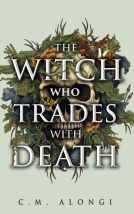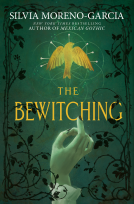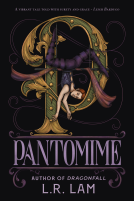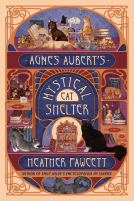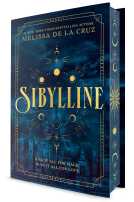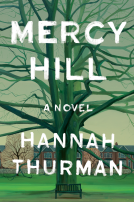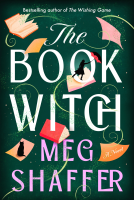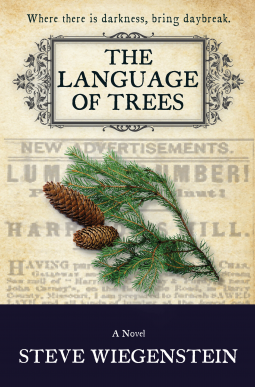
The Language of Trees
(The Daybreak Series)
by Steve Wiegenstein
This title was previously available on NetGalley and is now archived.
Send NetGalley books directly to your Kindle or Kindle app
1
To read on a Kindle or Kindle app, please add kindle@netgalley.com as an approved email address to receive files in your Amazon account. Click here for step-by-step instructions.
2
Also find your Kindle email address within your Amazon account, and enter it here.
Pub Date Sep 26 2017 | Archive Date Nov 06 2017
Description
The inhabitants of Daybreak, a quiet 19th-century utopian community, are courted by a powerful lumber and mining trust and must search their souls as the lure of sudden wealth tests ideals that to some now seem antique. And the courtship isn't just financial. Love, lust, deception, ambition, violence, repentance, and reconciliation abound as the citizens of Daybreak try to live out oft-scorned values in a world that is changing around them with terrifying speed.
A Note From the Publisher
Advance Praise
"In Steve Wiegenstein's new novel, The Language of Trees, a stunning balance of love and power occurs, between women and men, between wilderness and human ambition, and between the varied machinations of the body and the multivalent clarion of the spirit borne by those who people this fine work of historical fiction. The Language of Trees is aware of transcendent love, wise and clear-eyed with regard to human greed, and thrilling in its descent into both and emergence into greater life."—Shann Ray, National Endowment for the Arts Fellow and American Book Award winning author of American Copper, Balefire, and American Masculine
“What an Ozarks miracle Steve Wiegenstein has conjured in Daybreak—a communal hamlet, then a utopian community nearly as intricate in its generations and personalities as Stay More or West Table! Yet Daybreak seethes with its own raw idealisms, yearnings, ambitions, and loves. In The Language of Trees you will fall head over heels for Josephine Mercadier. And like Ozarks heroines in those unforgettable, fabled places she, and Daybreak, will ever be inviting you back.”
—Steve Yates, author of The Legend of the Albino Farm, the Knickerbocker Prize-winning Sandy and Wayne, and the Juniper Prize-winning Some Kinds of Love: Stories.
Marketing Plan
This title can be read as a stand-alone.
This title can be read as a stand-alone.
Available Editions
| EDITION | Other Format |
| ISBN | 9781943075386 |
| PRICE | $16.95 (USD) |
Average rating from 5 members
Featured Reviews
 Bonnye Reed F, Reviewer
Bonnye Reed F, Reviewer
I received a free electronic copy of this historical novel from Netgalley, Steve Wiegenstein, and Blank Slate Press in exchange for an honest review. Thank you for sharing your work with me.
We follow the lives of several citizens of a community known as Daybreak, Missouri from August 1887 through the winter of 1888, through good times and bad, prosperity and want. Daybreak began as an experiment in communal living in the 1850's and though there were setbacks through the Civil War things are beginning to smooth back out for the community. Or so it would seem.
I loved Josephine and Charlotte, Charlie and Ambrose. I enjoyed watching Charlotte's sons Adam and Newton mature and fill out their places in the community, and the way the community circled round to protect themselves from the lumber and mining company intent on destroying what made Daybreak special. This is a book I will happily recommend to friends and family, and I must read the previous books in their series by Steve Wiegenstein.
 catherine h, Reviewer
catherine h, Reviewer
Historian friends of mine will enjoy this story of a 19th century utopian community beset with problems from outsiders. I remember reading about these communities in college, I can't remember any lasting very long. Human nature what it is, it's a wonder we can all agree the sky is blue!
 MK F, Reviewer
MK F, Reviewer
Daybreak is a community founded in the late 19th century as a commune. All of its members share in the profits of the land and all hold an equal vote to decide what to do with the profits, including the women. That doesn't mean there weren't secrets and relationships and apparent inequalities among the members of the community. They become more apparent when a lumber company from New York decides to secure land in the area and wants to buy their community property to cut down the pine forests. In addition to this, a new minister with his own unique take on the Bible has settled in the area. There are too many changes for the people of Daybreak, prompting many decisions to make.
The story of a big company trying to take over the little guy is a common one.
I like Josephine the best out of the commune characters, even though she was prickly toward others and was seen as stubborn and sometimes unfriendly. The leader was harder for me to get to know, and his secret relationship and thoughts about Josephine didn't make me want to. His brother wasn't much better, so the lumber company's attempts to buy out Daybreak seemed to magnify the difficulties that were already present in the town.
I was surprised by how much I grew to like some of the other characters in the book and cared about their efforts to preserve their way of life. The ending is dramatic and really helps to drive home for everyone involved what is most important to them: the connections they have and want to make
Readers who liked this book also liked:
Melissa de la Cruz
Romance, Sci Fi & Fantasy, Teens & YA
